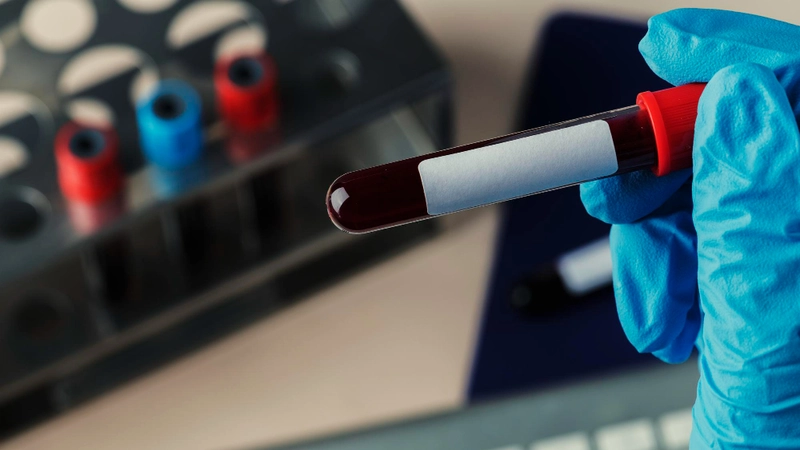- Published on: Jan 17, 2025
- 2 minute read
- By: SecondMedic Expert
Marburg Virus Disease : Symptoms & Treatment
Marburg Virus Disease (MVD) is a rare but highly fatal illness caused by the Marburg virus, a member of the Filoviridae family, which also includes the Ebola virus. Known for causing severe hemorrhagic fever, the disease poses a significant threat to global health. This blog explores Marburg virus symptoms, treatment options, and strategies for prevention.
Understanding Marburg Virus Disease
MVD is primarily transmitted to humans through contact with fruit bats, the natural hosts of the virus. Human-to-human transmission occurs via direct contact with bodily fluids, contaminated surfaces, or materials like bedding and clothing.
Marburg Virus Symptoms
The symptoms of Marburg virus disease often appear suddenly after an incubation period of 2 to 21 days. Early signs mimic common illnesses, making early diagnosis challenging. Here are the key symptoms:
-
Fever: High fever is often the first sign of infection.
-
Severe Headache: Intense headaches are a hallmark symptom.
-
Muscle Pain: Patients frequently report muscle aches.
-
Vomiting and Diarrhea: These gastrointestinal symptoms typically occur within a week.
-
Hemorrhagic Manifestations: In severe cases, internal and external bleeding may develop.
Prompt recognition of these symptoms is vital for early intervention and containment of the disease.
Marburg Virus Incubation Period
The incubation period, or the time between exposure to the virus and the onset of symptoms, varies from 2 to 21 days. This wide range depends on factors such as the mode of transmission and the patient’s immune system. During this period, the virus multiplies silently in the host, preparing for its symptomatic phase.
Marburg Virus Transmission
Marburg virus transmission occurs through the following pathways:
-
Animal-to-Human Transmission: Direct contact with fruit bats or their excretions is the primary source.
-
Human-to-Human Transmission: Direct exposure to infected bodily fluids like blood, saliva, or urine can spread the virus.
-
Fomites: Contaminated surfaces and materials, such as syringes or clothing, can also facilitate transmission.
Healthcare workers are particularly at risk during outbreaks due to their close contact with patients. Strict adherence to infection control measures is crucial to prevent further spread.
Marburg Virus Prevention
Preventing MVD involves a combination of individual and public health strategies. Key preventive measures include:
-
Avoid Contact with Bats: Avoid areas known for fruit bat populations and refrain from handling bats or their excretions.
-
Practice Good Hygiene: Regular handwashing with soap and water can reduce the risk of infection.
-
Personal Protective Equipment (PPE): Healthcare workers must use PPE to minimize exposure to infected individuals.
-
Isolation: Prompt isolation of suspected cases is essential to break the chain of transmission.
Public health campaigns and community awareness programs also play a vital role in reducing the spread of the virus.
Marburg Virus Vaccine
Currently, there is no approved vaccine for MVD. However, several candidates are under development, leveraging advancements made in Ebola vaccine research. Clinical trials are ongoing to evaluate their efficacy and safety. A future vaccine could be a game-changer in managing and preventing Marburg virus outbreaks.
Marburg Virus Treatment
There is no specific antiviral treatment for MVD. Management focuses on supportive care to alleviate symptoms and improve survival rates. Key aspects of treatment include:
-
Rehydration: Intravenous fluids and electrolyte replacement combat dehydration caused by vomiting and diarrhoea.
-
Oxygen Therapy: Maintaining oxygen levels is crucial for severe cases.
-
Pain Management: Analgesics help relieve severe pain.
-
Blood Transfusions: In cases of hemorrhagic symptoms, transfusions may be necessary.
-
Experimental Therapies: Antiviral drugs and monoclonal antibodies are being studied but are not yet widely available.
Marburg Virus Outbreaks and Global Response
MVD outbreaks have occurred sporadically since its discovery in 1967. Recent outbreaks emphasize the need for swift action and global coordination. Efforts by organizations like the World Health Organization (WHO) focus on surveillance, rapid response, and research to curb the disease.
Living with the Threat of Marburg Virus
While Marburg virus disease is rare, its high fatality rate demands vigilance. By understanding Marburg virus symptoms, treatment options, and prevention strategies, individuals and healthcare systems can prepare for potential outbreaks. Research into vaccines and treatments offers hope for a future where this deadly disease can be effectively managed.
For more expert insights on infectious diseases, consult the specialists at Second Medic. Together, we can prioritize health and safety in the face of emerging threats.
Read FAQs
A. Early symptoms of Marburg Virus Disease include high fever, severe headache, muscle pain, and general malaise. These symptoms often mimic other illnesses, making early diagnosis critical.
A. The Marburg virus spreads through direct contact with infected bodily fluids, contaminated surfaces, or materials. It can also transmit from animals like fruit bats to humans
A. Currently, there is no approved vaccine for Marburg Virus Disease, but research and clinical trials are underway to develop effective vaccines.
Our Services
Request A Callback
Recent Posts
Top 5 Lab Tests You Can Book from Home in India
Aug 07,2025
Is Curd Good or Bad for Acidity?
Aug 02,2025
Can Fatty Liver Be Reversed Completely?
Jul 31,2025
How Your Sleep Schedule Affects Digestion
Jul 28,2025










